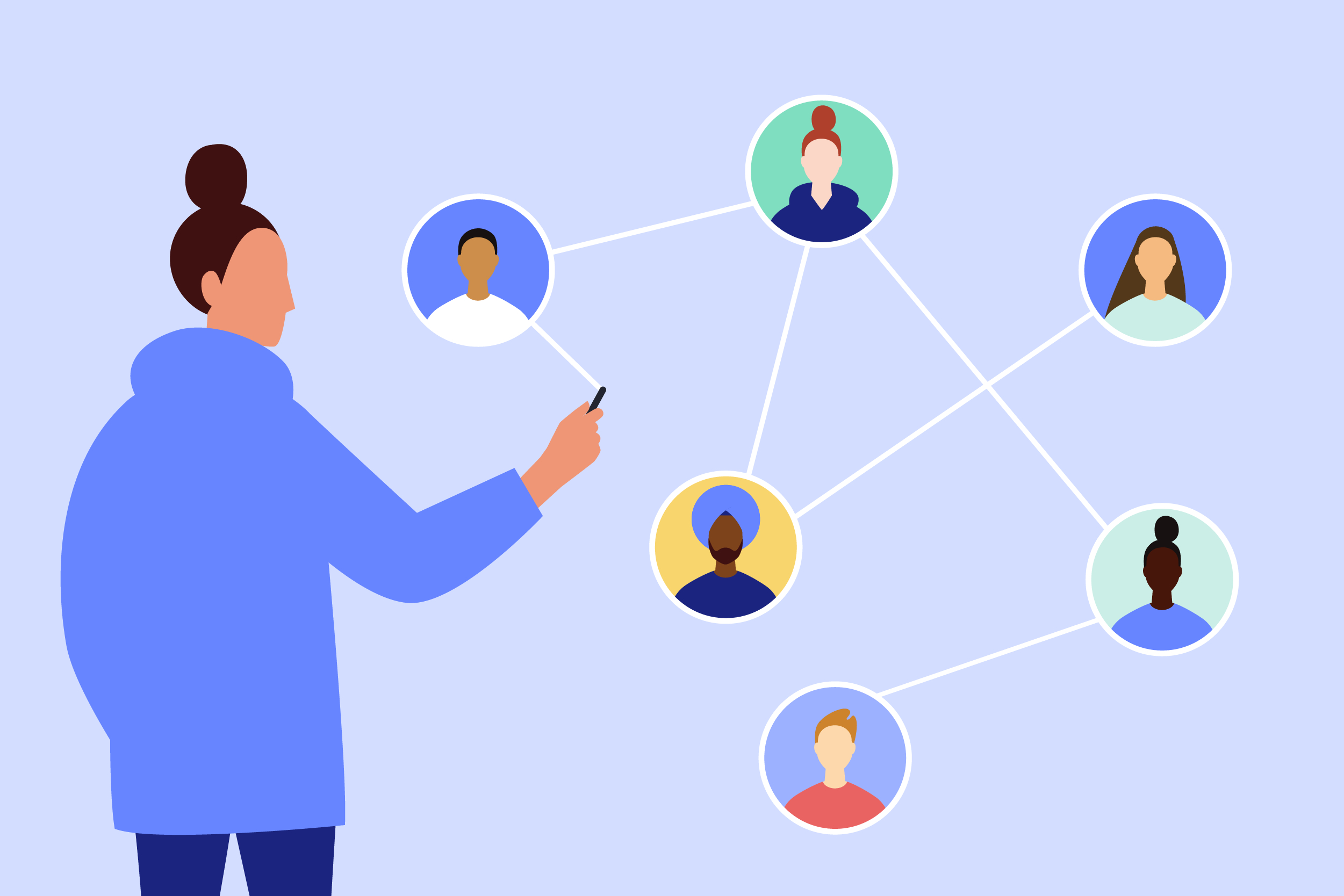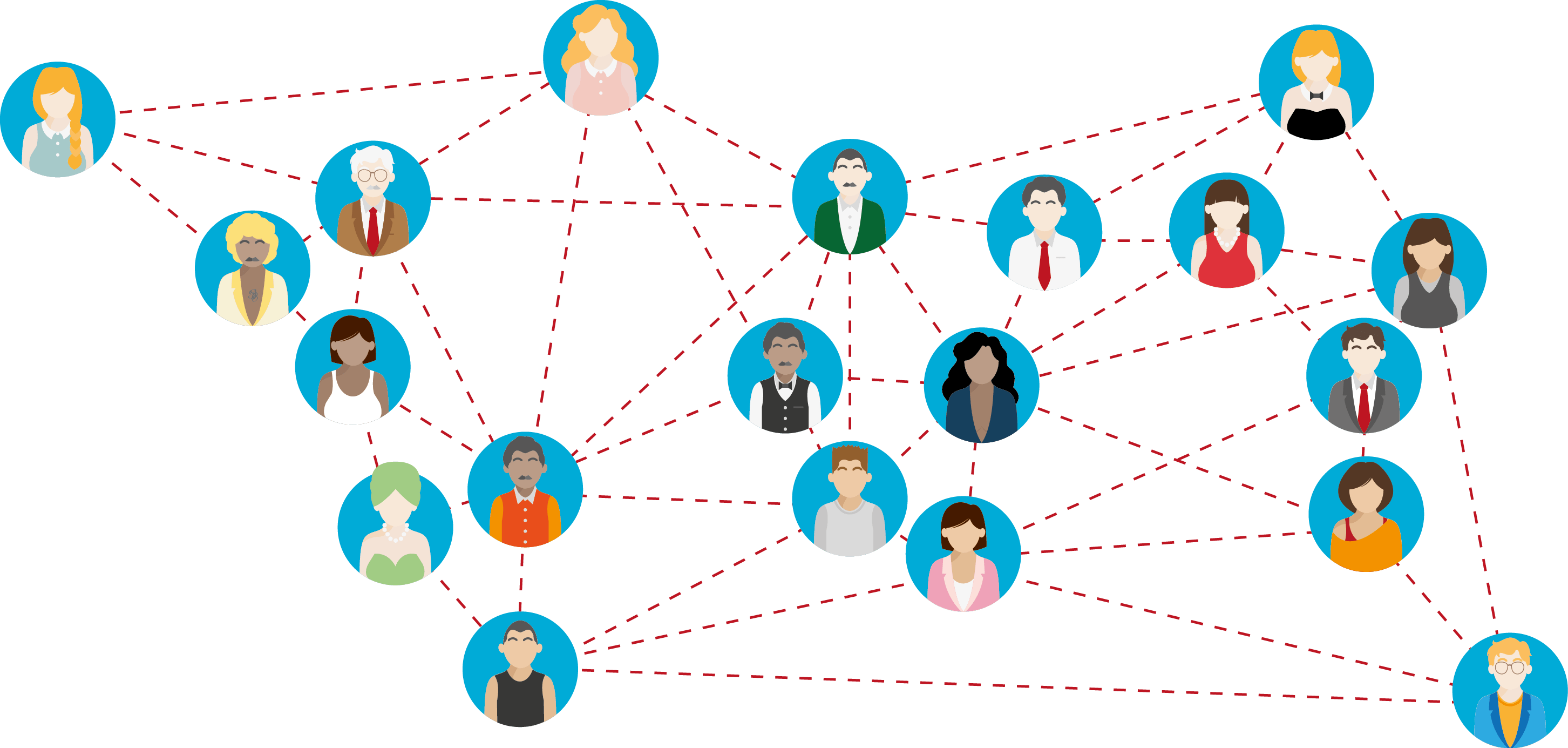How Does Freelancer Networking Work? Here's How In Just 15 Ways!
Discover essential strategies and tips for effective freelancer networking in our comprehensive guide. Learn how to build and maintain valuable professional relationships, leverage online platforms, and navigate both in-person and virtual networking opportunities to enhance your freelance career.
Author:Camilo WoodReviewer:Emmanuella SheaJan 17, 2024496 Shares35.4K Views

As a freelancer, networking is a pivotal tool for success. It's not just about exchanging information but also about forging professional and social connections. Networking is widely recognized for its importance in job hunting, and it's equally critical for freelancers. It's through networking that freelancers create and validate their reputation, a key factor in securing work.
Let's delve into the art of effective freelancer networking and its undeniable benefits for freelancers.
Why Network?
Networking is fundamental for several reasons. Most opportunities arise from within one’s network, as people generally prefer to collaborate with familiar faces or those recommended by trusted sources. For freelancers, their network forms the backbone of their professional journey.
Different Types Of Professional Networks
There are three primary types of professional networks:
- Operational Networks -These include current or former colleagues and members of professional organizations relevant to your field.
- Strategic Networks - These may consist of individuals outside your immediate field but who can offer visionary advice and connections.
- Personal Networks - Comprising friends, family, alumni, and social media connections, these networks are often overlooked but can be highly beneficial.
These individuals can provide valuable referrals and help expand your professional circle. The importance of networking in sourcing work and growing your professional reach cannot be overstated.
Top Tip!
A great way to kickstart your networking as a new freelancer is to reach out to your contacts via email. Inform them about your freelance venture and the services you offer. Include your contact details and encourage them to refer you to potential clients. This approach can rapidly widen your professional network and open up new opportunities.
Your Future Network
Your network can grow to include other freelancers, potential and current clients, and providers of freelance opportunities. Networking events, coworking spaces, and freelancer forums are great places to meet these individuals. Networking is a two-way street; you can offer valuable information or skills in return. Remember to collect contact details for future correspondence.
Business Or Pleasure?
Networking isn't limited to formal events. Social gatherings can also be fruitful networking grounds. The key lies in building rapport and showing genuine interest in others. Networking is essentially about relationship building, and social relationships are as vital as business ones. Offer to exchange contact details when you meet someone who could be a valuable addition to your network.
Networking Online
LinkedIn stands out as a primary online networking platform. It's an excellent medium for maintaining professional contacts and discovering job opportunities. LinkedIn’s features, like job searches, posting articles, and participating in groups and forums, are invaluable for networking and finding work. Moreover, participating in freelance websites and their forums can also be beneficial, though discretion in sharing client information is advised.
Networking Face-to-Face
In-person networking has its unique advantages. Events like business conferences, local networking events, alumni events, and Meet-Ups are excellent for building relationships. However, it's crucial to balance the cost (both monetary and time) against the potential benefits.
A Trade-Off In Cost And Benefit
Networking involves a balance between cost and benefit. As a freelancer, your time is money. Attending events and networking can consume significant time, which could otherwise be used for paid work. However, if you're experiencing a slow work phase, networking can be a productive alternative. Over time, you'll develop an intuition for which events and opportunities are worth your time, optimizing both your work and network building.
15 Ways To Build A Profitable Network As A Freelancer
Networking is essential for uncovering new clients and projects. It leads to new opportunities, collaborations, and professional relationships. It's not just about securing immediate work; it's about building connections that can provide work, leads, and invaluable advice in the long term. Let's check out 15 ways to freelancer networking:
- Embrace Authenticity -Genuine interactions create lasting impressions. Show real interest in others' work and share your passion authentically.
- Strategize Your Networking - Define clear networking objectives. Understand what you want to achieve and identify the groups or individuals who can help you reach these goals.
- Collaborate with Fellow Freelancers - Networking isn't a one-way street. Support your peers and build a community of mutual aid.
- Utilize Existing Social Networks -Don't overlook your current social circles. Friends, family, and acquaintances can often provide valuable connections.
- Leverage Online Platforms Effectively - Use LinkedIn, Facebook groups, and other online platforms to expand your reach. Keep your profiles up-to-date and engage actively in discussions.
- Develop Meaningful Business Relationships - Aim for deeper, more personal connections. Find common interests that go beyond work.
- Reconnect with Past Clients -Previous clients can be a great source of new projects and referrals. Maintain good relationships and keep in touch.
- Create a Networking Schedule - Dedicate specific time for networking activities. Consistency is key in building and maintaining a network.
- Explore Diverse Networking Venue -Attend industry-specific events, trade shows, and local business gatherings to meet potential clients and collaborators.
- Embrace the Power of a Business Card -In a digital world, a tangible business card can still make a strong impact. Have them handy for in-person meetings.
- Understand Body Language - Non-verbal cues are powerful. Ensure your body language conveys openness and professionalism.
- Consistent Follow-Up -After making new connections, follow up. This can transform a brief interaction into a lasting professional relationship.
- Seek Feedback and Referrals -Don't hesitate to ask for feedback from clients and peers. Positive reviews and referrals can significantly expand your network.
- Participate in Online Forums and Discussions -Engage in relevant online communities. Share your expertise and gain insights from others in your field.
- Volunteer for Relevant Causes - Offer your skills for causes you care about. It's a way to give back and connect with like-minded professionals.
The Long-Term Benefits Of Networking
Effective networking can lead to long-term collaborations, mentorship opportunities, and even friendships. It not only opens doors to new projects but also helps in personal growth, offering insights into various aspects of freelancing and business management.
Leveraging Networking For Continuous Learning
Networking is an opportunity for continuous learning. Interacting with a diverse group of professionals exposes you to new ideas, trends, and practices in your field. Stay open to new information and be willing to explore areas outside your comfort zone.
Handling Networking Challenges
Networking can sometimes be overwhelming, especially for introverts or those new to freelancing. Start small, perhaps with online interactions, and gradually move to larger, in-person events. Remember, quality trumps quantity when it comes to meaningful connections.
Advanced Networking - Going Beyond The Basics
As you grow in your freelancing career, your networking should evolve too. Look for ways to contribute to your network, such as mentoring others or leading community projects. This positions you as a leader in your field and enhances your reputation.
Networking Ethics And Professionalism
Always maintain professionalism in your networking endeavors. Respect people's time and boundaries, and avoid overly aggressive sales tactics. A respectful and considerate approach will earn you long-term respect and trust.
The Role Of Digital Tools In Networking
Leverage digital tools like CRM software to manage your contacts, schedule follow-ups, and keep track of networking activities. Apps and platforms designed for networking can streamline the process and ensure you don't miss any opportunities.
Freelancer Networking FAQs
How Can Freelancers Effectively Start Networking?
Begin by identifying your goals and the target audience within your field. Leverage online platforms like LinkedIn and engage in relevant groups. Attend industry-specific events and consider reconnecting with past clients and colleagues. Start with your existing social circle and gradually expand.
What Are The Key Benefits Of Networking For Freelancers?
Networking provides access to new job opportunities, valuable insights into industry trends, potential for collaborations, and a chance to build a support system of peers. It also enhances your visibility and reputation in your professional field.
How Important Is Online Networking Compared To In-Person Networking?
Both are crucial. Online networking allows you to connect with a broader, global audience and is more accessible. In-person networking, however, offers a personal touch and can lead to stronger, more meaningful relationships.
How Can Introverted Freelancers Improve Their Networking Skills?
Start with online networking to build confidence. Prepare talking points for events and focus on one-on-one conversations. Remember, quality matters more than quantity. Engaging genuinely with a few people is more effective than trying to meet everyone.
Can Social Media Be An Effective Tool For Freelancer Networking?
Absolutely. Platforms like LinkedIn, Twitter, and Facebook can help freelancers showcase their work, share insights, and connect with potential clients and fellow professionals. Regular engagement and content sharing are key to maximizing social media for networking.
How Often Should Freelancers Network?
Networking should be a regular activity. Allocate weekly time for online interactions and attend in-person events as they arise. Consistency is crucial for maintaining and growing a robust professional network.
What Are Some Common Networking Mistakes Freelancers Make?
Common mistakes include not following up after making connections, focusing solely on self-promotion, neglecting to listen actively, and not diversifying their networking strategies to include both online and offline methods.
How Can Freelancers Measure The Success Of Their Networking Efforts?
Measure success by the growth in your professional connections, the number of job opportunities sourced through your network, the quality of relationships developed, and any collaborations or referrals gained through networking activities.
What Role Does Networking Play In A Freelancer's Long-Term Career Growth?
Networking is pivotal in establishing a freelancer's reputation, opening doors to new opportunities, and ensuring a steady stream of work. It also helps in staying updated with industry trends and can lead to mentorship opportunities and collaborations that contribute to long-term career development.
Should Freelancers Prepare An Elevator Pitch For Networking?
Yes, having a concise, compelling elevator pitch ready is crucial. It should summarize who you are, what you do, and what unique value you bring to your field. This pitch is useful for introducing yourself quickly and effectively in both online and in-person networking situations.
Conclusion
Networking is a skill that, while not innate to everyone, is crucial for career growth and success, especially for freelancers. By strategically growing your network through nurturing your freelancer networking skills, you can create a foundation that supports and enhances your freelance career. Whether through operational, strategic, or personal networks, the connections you make and maintain can be one of the most impactful aspects of your freelancing journey.

Camilo Wood
Author

Emmanuella Shea
Reviewer
Latest Articles
Popular Articles

